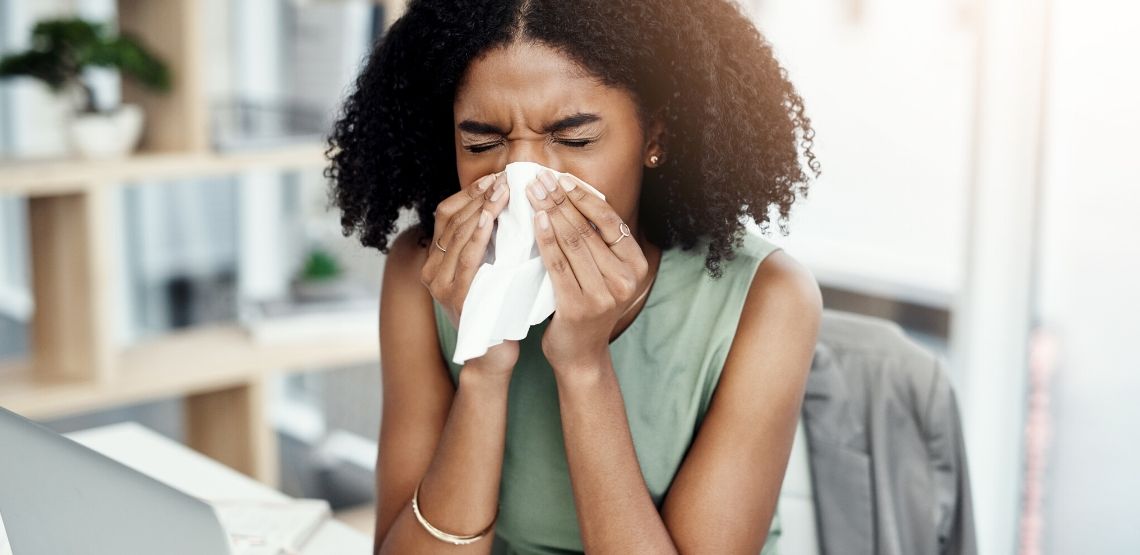Seasonal Allergy Treatment
Suffering from sniffling, sneezing, or congestion? You can probably blame climate and the weather for spreading seasonal allergens. Allergens are hard to avoid if you ever want to leave your house—they are everywhere, but you do not have to suffer. Let’s look at seasonal allergy treatment and how it can help you with your symptoms.
What Are Seasonal Allergies?
Millions of people have seasonal allergies. Seasonal allergies, also known as allergic rhinitis or hay fever, develop when the body’s immune system reacts to something in the environment. Seasonal allergies only occur during certain times of the year depending on a person’s specific allergy triggers. You will notice a spike in seasonal allergies when certain plants pollinate from spring through fall.
How Climate Affects Seasonal Allergy Symptoms
It is no wonder that some people deal with allergies for a large part of the year. Here are some examples of how climate and weather play a big part in seasonal allergies:
- Tropical climates have grass pollinating throughout much of the year
- Mild winters can cause early pollination
- Rainy springs can cause faster plant growth
- Some pollens thrive during cool nights and warm days
- Molds grow quickly in high humidity
- Pollen counts increase when it is windy
Common Symptoms
We all react to allergens differently. Allergy symptoms you may encounter include:
- Coughing and wheezing
- Sneezing during particular times of the year
- Watery, itchy eyes
- Stuffy nose
- Runny nose with a clear, watery discharge
- Congestion
- Headaches
- Sinus infections
- Itchy skin
- Scratchy feeling at the back of the throat or roof of the mouth
Treatment Options
There are several options for seasonal allergy relief and most methods do not require a visit to the doctor.
Medications
Most allergy medications are available over the counter (OTC), but you should consult with a pharmacist before purchasing a product you have not used before. Allergists recommend starting medications a couple weeks before symptoms are expected to begin to help with allergen resistance. Some medications will require a prescription, including nose drops.
Types of medication include:
- Oral antihistamines. This relieves sneezing, itching, watery eyes. Antihistamines may cause sleepiness, dry mouth, blurred vision, bowel issues, confusion, and light-headedness
- Decongestants. These provide temporary relief from a stuffed nose. Decongestants can come in nasal sprays, but you should only use nasal decongestants for a few days in a row. Long term use of these products can actually make symptoms worse due to rebound congestion. You should not take decongestants if you have high blood pressure unless you have clearance from your doctor.
- Antihistamines. Most antihistamine-decongestant combinations are available OTC as a single tablet. These combination products are not recommended for people taking a monoamine oxidase inhibitor (an antidepressant).
- For nasal symptoms, use a corticosteroid nasal spray, an antihistamine, or an antihistamine-decongestant combination. Nasal sprays may cause nosebleeds or a sore nose, but the side effects with these spray products are less severe than drugs taken orally.
Related Search Topics (Ads)
Immunotherapy (Allergy Shots)
Immunotherapy injections expose you to your allergen in gradual increments over time to reduce your immune system’s reaction. Allergy shots help teach your body to tolerate the allergen rather than having a full-blown reaction. These shots are regular injections comprised of tiny amounts of the substances that cause your allergies. Immunotherapy should be started after pollen season to prepare for next season and are most effective when used all year round.
Sinus Irrigation
Sometimes, a good flush of your sinuses with a warm water and saline solution is the answer to your seasonal allergies. The saline solution loosens and rinses mucus and allergens from your nasal passage, hydrates the nasal lining and helps relieve nasal congestion. All you need is a squeeze bottle or neti pot and you can do sinus irrigation in the comfort of your own home. A neti pot looks like a small teapot; to use it, bend your head over the sink, put the spout in your upper nostril and gently pour the saline solution into your nose, where it will drain out of your lower nostril. Then repeat on the other side. Rinse the device after each use with distilled water and leave to air dry for the next time you need it.
Eye Drops
Artificial tears can help reduce irritation when seasonal allergies cause your eyes to itch, become red and feel sore. Eye drops containing antihistamines are often effective and available from the pharmacy without a prescription. Prescription eye drops for very severe symptoms contain corticosteroids but may cause increased pressure and infection in the eye. Drops with cromolyn are used to prevent allergic reactions rather than relieve active symptoms; these drops are also only available with prescription.
Extracts of Butterbur and Spirulina
These natural remedies have been used to treat seasonal allergy symptoms. Butterbur has also been used to treat asthma, bronchitis and reduce mucus, but research is ongoing to determine its effectiveness. Tests with spirulina, an algae, indicate that it may help with allergic reactions by stopping the release of histamine.
Acupuncture
Acupuncture is the practice of inserting needles into the skin at precise body points along the body’s lines of energy. There is research that supports that acupuncture works to treat seasonal allergies, but research is ongoing. In one study, those who received acupuncture had a reduction in seasonal allergy symptoms and less need for medication.
When to See Your Doctor
Most people can ease their seasonal allergies with OTC medications. If you experience seasonal allergies that are more severe, you should schedule an appointment with your doctor. You doctor can send you for testing to determine the allergens that trigger your symptoms, which will help you treat your allergic reactions.
There are a few precautions you can take to minimize your exposure to allergen triggers:
- Monitor pollen and mold counts through weather reports
- Keep your windows and doors shut during allergy season
- After being outside, shower, wash your hair and change your clothes
- Stay inside on dry, windy days
- Wear a pollen mask for outdoor chores
Hopefully seasonal allergies do not keep you penned indoors. There are many treatment options available that should give you the freedom to be outside no matter the season.


